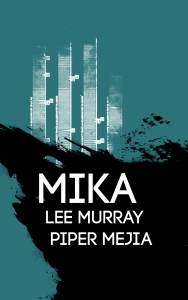We hope you enjoy this short excerpt from The Ghost of Matter by Octavia Cade, the last in our inaugural SHORTCUTS series of short science fiction and fantasy novellas from Aotearoa New Zealand.
1886. Two young boys disappear in the Sounds. Their mother grieves, all the music cut out of her heart; their father wanders the coast for a year, wanting and not wanting to find any part of them left behind. And their brother Ern, faced with a problem to which no solution can be found, returns to his laboratory – and to the smell of salt, soft voices in his ear, wet footprints welling seawater in the darkness.
MANCHESTER, 1909
The gold was beaten very thin, into leaf. It shimmered even as the room went dark around it, shimmered like the sea surface under sunset and Ernest held his breath, hoped for the absence of salt.
It was dark in the laboratory cellar, with pipes above and below. Whenever he heard voices on the stair, at the door, he’d have to warn them to duck their heads for the hot-water pipe, to take care when stepping over the other two water pipes just beyond. If they slipped in puddles and injured themselves, the experiment would have to be put off while they patched themselves up. Then the readjustment would have to start all over again, for it took half an hour in the dark to be able to see the scintillations, to not miss their presence with eyes too used to light. The worst of it was if they slipped, Ernest couldn’t even be certain what it was they’d slipped in. The puddles might have come from leaky pipes, but he’d gone over them all himself and never found a single leak. Those puddles that appeared in the dark, smelling of salt, would magically vanish when the lights turned on. It made the cellar floor untrustworthy.
Ernest was so careful, stepping down there himself. His knee had never been the same since those first days in London, when he’d fallen and damaged it. On a banana skin, too, and that made it worse. Such a ridiculous accident. He didn’t quite trust it to hold him if he skidded in water, if one leg shot out from under him and bent awkwardly. He always watched out for water, and the presence of gold always reminded him.
‘Half an hour, lads,’ he said. Adjusting to the darkness enough to see the scintillations, the scattered particles, could be tedious, a forced delay but a necessary one in a method that strained sight and patience both. They worked in relays, searching by turns and in single minutes for particles that wandered off-track, that rebounded in directions they were not supposed to go.
Ernest hunched over the microscope, blind and squeezed into position. He had to move slowly – they all did – to avoid stumbling, to keep the experiment from knocking over. He was looking for the little flashes that indicated radioactive particles shot through the leaf had hit the target: a phosphorescent plate, painted with zinc sulphide. Radon particles that by all rights should have hit dead on, like a boat headed straight for home.
The line wasn’t straight. Instead, a fuzziness, as if the particles had lost their way, and Ernest ordered the experiment reconfigured to search further, to see if the scattering was wider than they thought.
‘Do you see that?’ said Geiger, said Marsden, pressed up against him like brothers and the three of them crammed together in a little space and wondering. ‘I think some of them are coming back.’
One in eight thousand, they were: the little particles that hit the gold foil and rebounded back to where they came, as if returning to the source. Some scattered off to the sides, as much as ninety degrees off, but for Ernest it was the rebounders that caught him about the throat, that made his eyes squint and smart in the dark.
(Sitting in the church with Martha, with his father and his brothers and sisters, those that remained, sitting in front of an empty space where the coffins would be if they’d ever found bodies to put in them, listening to the priest talk as gently as he could of souls returned to God, and watching his mother twist a loose ring on fingers grown thin from grief.)
‘Professor!’ said Geiger (said Marsden and Charlie and Herbert). ‘Do you see that?’
‘I see it,’ said Ernest, of the strange, hard scatter that could only come if the foil was solid somehow and at the same time not, as if the gold united and fragmented at once. ‘I see it!’ he said again, and the thrill in his voice was from more than science, more than scatter – for while there had been no puddles on the floor, no salt water and no scent, the sight of scattering had come with a cold small hand, brief and damp on the back of his neck.
‘Don’t jump,’ said Geiger, laughing. ‘You don’t want to tip it all over.’
‘I’ll jump if I want to,’ said Ernest, quick and gruff and absolutely prepared to have his chilly, goose-bump flesh excused by a more tangible mystery, by results and equipment he could reach out and touch.
‘They’re punching through,’ said Marsden, and his breath in the dark was excited, as if he had run a race and come home first. ‘Most of them, anyway.’



